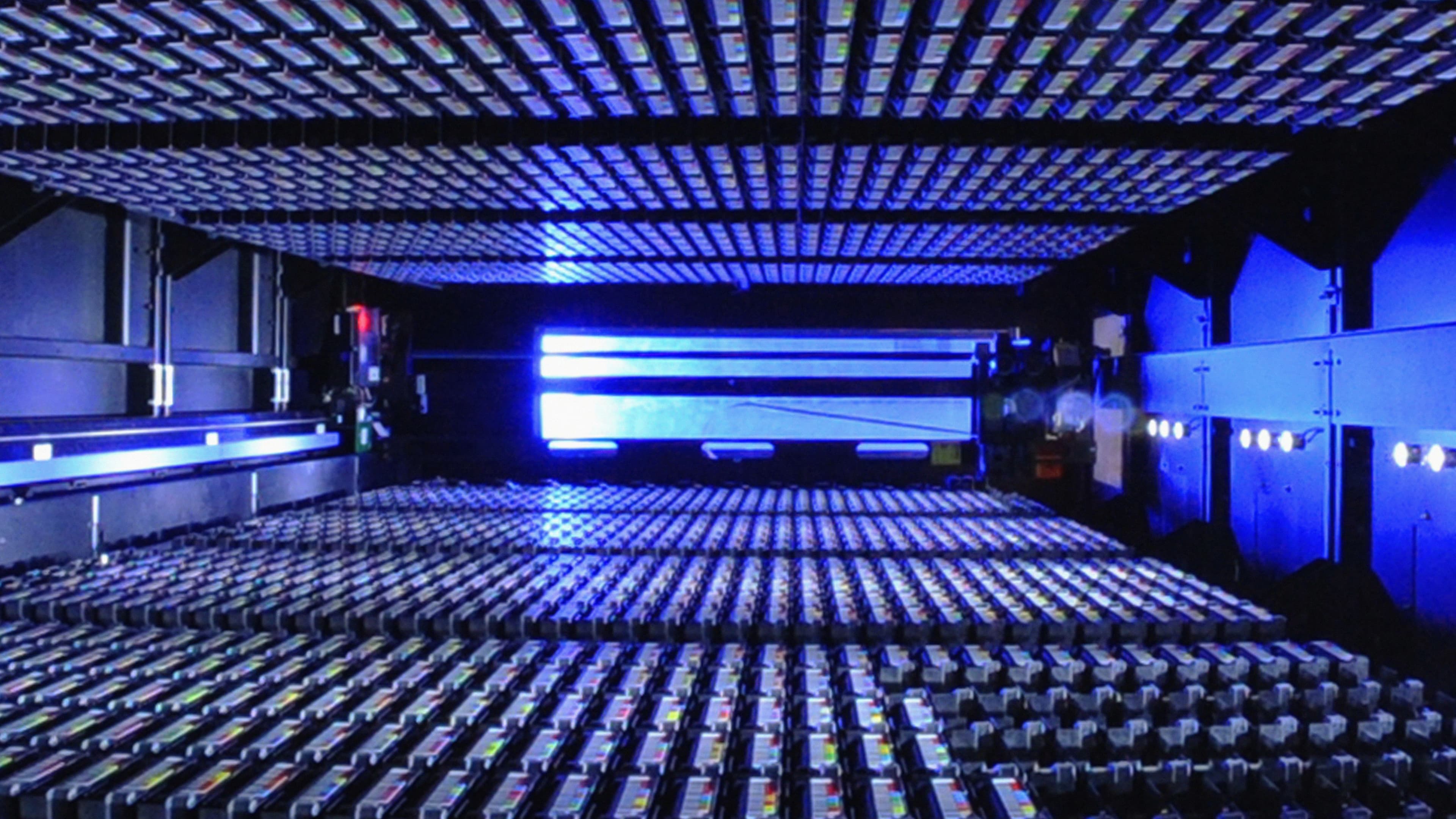The Discovery Accelerator comes to Europe
In a newly announced collaboration, more than 100 scientists from IBM Research and the Hartree Centre at the UK Research and Innovation's Science and Technology Facilities Council (STFC) will work together over the next five years. They will apply artificial intelligence and quantum computing to produce innovations in materials, life sciences, climate, agriculture, and manufacturing. The partnership should lead to new opportunities for local businesses and enhance economic competitiveness.
Discovery is the driving force behind technological and societal progress. It’s at the heart of finding new drugs to treat diseases, new materials for clean and sustainable manufacturing and energy production, and myriad other innovations.
Take penicillin. Microbiologist Alexander Fleming discovered it in 1928. That find has so far saved some 200 million lives. And it's just one of many material discoveries that have transformed society for the better.
But to deal with many challenges our world is facing, we have to boost the pace of discovery. This is where the Discovery Accelerator comes in.
An exciting new type of partnership, its mission is to deploy the next frontier of technologies from across IBM Research in high performance computing, AI, quantum computing, and hybrid cloud to What’s next in science is accelerated discovery: The need for science has never been more urgent. As the problems the world faces become more complex and far-reaching, we will need to rely more and more on technical rigor and science to help us find solutions.accelerate discovery to solve some of the most ambitious problems in science, business and society.
The Discovery Accelerator is now coming to the United Kingdom through a partnership between IBM and the UK government’s Science and Technology Facilities Council (STFC). Based at the Hartree Centre, the new Hartree National Center for Digital Innovation (HNCDI) will become a hub of engagement with collaborators across the UK's industrial and research ecosystem seeking to drive innovations in life sciences, new materials development, environmental sustainability, and advanced manufacturing.
Accelerating the pace of discovery is not just convenient—it’s essential. Although Fleming discovered penicillin in 1928, it wasn’t until the 1940s that it got administered to a human, and took another 16 years to develop reliable, efficient chemical synthesis methods. Just imagine how many more lives could have been saved if it was put to use faster.
Today, finding a new drug or a new material for manufacturing can still take a decade or more. But the rapid development of vaccines for COVID-19 shows us it is possible to speed up the discovery process. Our thesis is that a convergence of rapidly developing capabilities in AI, quantum computing, and high-performance hybrid cloud computing provides a unique opportunity for a technology-supercharged application of the scientific method to promote discovery at a much more rapid pace.
The five-year partnership between IBM and STFC will seek to do just that with a close collaboration between scientists from IBM Research and STFC.
IBM will bring a portfolio of technologies to the partnership from our high performance computing, AI, quantum, and hybrid cloud research teams. These include access to a broad set of emerging AI tools for discovery, such as RXN, a cloud-based platform that combines AI and the ability to directly control robotic labs to enable end-to-end design and synthesis of new chemical compounds; Deep Search, a next generation AI tool for generating insight from large amounts of structured and unstructured technical literature; and generative modeling with the Molecule Generation Experience, a type of AI that can be used to infer knowledge gaps and generate hypotheses to augment human reasoning and drive the scientific method.
The technologies also include the Bayesian Optimization Accelerator (BOA), a state-of-the-art general optimization tool that finds the most optimal answer for complex, real-world design problems. BOA was developed as part of the previous collaboration between IBM and STFC and highlights the potential for the Discovery Accelerator to produce broad reaching innovations in the coming years.
IBM’s commitment to STFC as part of the Discovery Accelerator also includes access to IBM’s fleet of quantum computing systems in the cloud and a program of collaboration to advance application of quantum computing to advance discovery in scientific and business domains. This will include access to IBM’s next premium quantum system with the 127-qubit Eagle processor , and beyond over the next few years.
With this technology foundation, IBM and STFC researchers will collaborate deeply with each other and with industry and academic partners in the UK. Collaborating on hard problems isn’t new for the STFC Hartree Centre and IBM. In February 2013, scientists from both companies started using high performance computing and data analytics for research in collaboration with dozens of firms ranging from large enterprises, including Unilever and AstraZeneca, to smaller ones like Gexcon and the Scotch Whisky Research Institute. One pioneering project with the Rothamsted Research Institute investigated how to predict moth migrations to protect crops. More recently, they collaborated to understand how soil microbiomes can shape soil health.
The necessity to accelerate discovery–and the opportunity to do so with advanced technology through the scientific method–has never been greater. The Discovery Accelerator at the STFC Hartree Centre promises to be one of the key catalysts of discovery with far reaching benefits to the UK and beyond in the coming years.
If you are a UK business or university interested in collaborating with us, contact us.
Notes
- Note 1: What’s next in science is accelerated discovery: The need for science has never been more urgent. As the problems the world faces become more complex and far-reaching, we will need to rely more and more on technical rigor and science to help us find solutions. ↩︎
Related posts
- NewsAnupama Ray and Robert Davis
Multi-objective optimization offers bold new path to quantum advantage
ResearchStefan Woerner, Daniel J. Egger, and Robert DavisThe community-led research that shaped IBM Quantum Developer Conference 2025
NewsSanket Panda and Robert DavisScaling for quantum advantage and beyond
NewsRyan Mandelbaum
